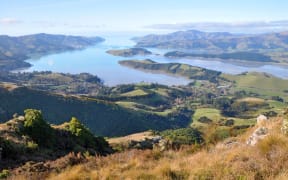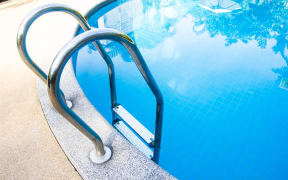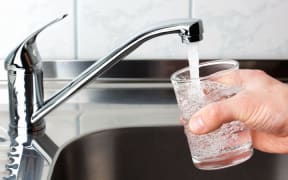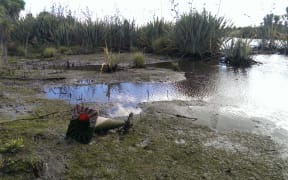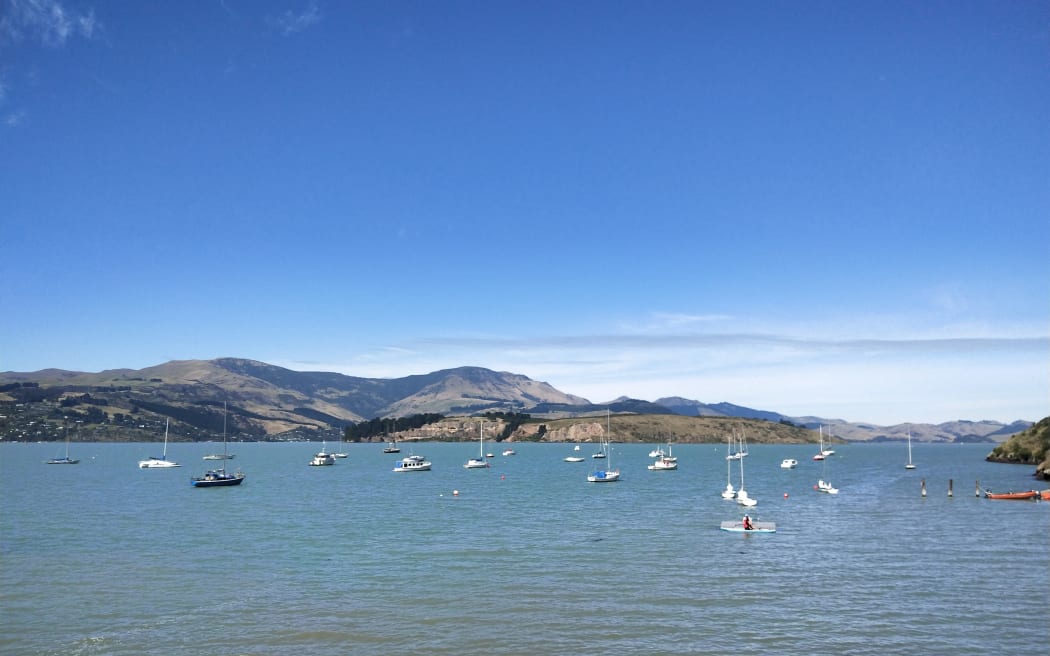
Cass Bay in Christchurch, Photo: RNZ / Niva Chittock
Councils and a swim group are working to detect and reduce the levels of contaminants in Christchurch's Whakaraupō Lyttelton Harbour.
Several beaches in the harbour had been graded permanently unsuitable for swimming this summer, based on data from the past five years.
A public health warning issued for Cass Bay on 30 December was lifted on Tuesday afternoon.
Te Whatu Ora Waitaha Medical Officer of Health Cheryl Brunton said test results showed faecal bacteria levels had dropped back to safe levels.
"This is great news for swimmers and other recreational water users who would have been avoiding the water following the high levels of contamination," she said.
But Brunton warned people other beaches nearby were still not safe to swim at.
"A number of other sites within Whakaraupō Lyttelton Harbour including Corsair Bay, Rāpaki Bay, Sandy Bay, Diamond Harbour Beach, Purau Beach are permanently unsuitable for swimming."
Christchurch swim coach and organiser of ocean races at Corsair Bay, Daniel Able, wanted the water quality grading to be done in a more user friendly way.
He had run races at the bay in the past few weeks after his own water test results showed faecal bacteria levels were safe.
"As soon as [the council] can't be 95 percent sure that the water is going to be of swimmable quality, based on the national framework for testing, they have to list it as unswimmable ... my concern is the public are just being presented with the term 'unswimmable'," Able said.
He believed the current system might struggle to communicate a serious health risk because information would not reach people quickly, and they might not take it as seriously as they ought to because of the low threshold for deeming a location unswimmable.
Able said he wanted to see the public given the raw test data instead of the classification and an increased number of tests at popular swimming spots.
"I want people to make a judgement based on their own comfort level and what risks they're willing to take ... We don't want to send people into dirty water, we don't want to put a risk on their health but we also want people to understand the information they're handed.
"It's great, already we are collaborating with Canterbury Regional Council. They tested the water at Corsair Bay yesterday, we tested today. And all of those results will be available on the [Land, Air, Water Aotearoa] website ... I see no reason why we can't be testing daily."
According to the council, most sites were tested weekly over the summer.
Council three waters head Helen Beaumont said a $60 million Lyttelton wastewater pipeline was expected to put a stop to discharges into the harbour by the end of January.
"We have been working on removing all routine discharges of treated wastewater from our treatment plants on the harbour over the last five years.
"The discharge from Diamond Harbour ceased back in December 2021. The discharge from the Governor's Bay plant ceased even earlier, in December 2018."
Instead, it would be pumped over the hill to the city's wastewater plant in Bromley.
The project was supposed to be completed in 2021 but was delayed due to supply chain difficulties and poorer work conditions than expected.
But the pipeline was unlikely to substantially improve water quality, Beaumont said.
"You can get rain on roofs, roads, carparks. It can pick up bird droppings, animal manure, rubbish sediment and that contaminated runoff can still flow through drains, rivers, streams and out into those bays," she said.
"It's a very difficult thing [to manage], because in terms of the council, we can only manage runoff within our reticulation system. And that's a small part of the runoff going into the harbour as a whole. Certainly, we do manage that as much as we can, and have regular programs to sweep roads."
Beaumont said the city council was also working closely with the regional council to investigate causes of contamination in the harbour.
In the meantime, she recommended people to check it was safe to swim before getting into the water.
"Nobody [should] swim in rivers, streams, or coastal waters after heavy rain, because there are so many sources of contamination that can wash in, and most of those are not able to be controlled.
"Wait until the water looks clean and clear and check for the latest water quality information."
